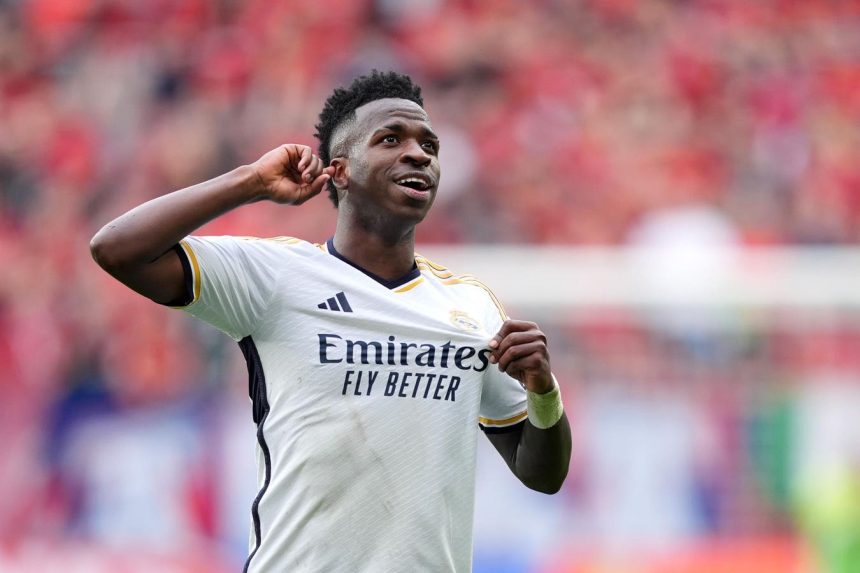Manolo Romero, a seasoned scout who spent two decades identifying talent for Real Madrid, offered a candid assessment of the club’s current state of affairs, particularly concerning the potential departure of star player Vinicius Jr. and perceived flaws in squad planning. Romero, whose expertise lies in unearthing promising players in Catalonia, a region traditionally dominated by Barcelona, expressed his belief that Real Madrid president Florentino Perez would readily part ways with Vinicius if a sufficiently lucrative offer materialized. He posited that a bid exceeding €300 million would be irresistible for Perez, suggesting that the president’s long-standing admiration for Kylian Mbappe might supersede his attachment to the Brazilian winger. This assessment comes in the wake of reports last year of a staggering €500 million bid for Vinicius, a figure that, while unconfirmed, underscores the player’s immense value and the potential temptation for Madrid to cash in.
Romero’s insights extend beyond the potential sale of Vinicius, delving into what he considers to be significant shortcomings in Real Madrid’s squad planning for the 2024/2025 season. He criticized the club’s failure to adequately address the eventual departure of midfield maestro Toni Kroos, whose influence and experience have been pivotal to the team’s success. Furthermore, he highlighted the lack of sufficient cover in defense, a vulnerability exposed by injuries to key players like Eder Militao and Dani Carvajal. This lack of foresight, Romero argues, leaves Madrid exposed and ill-equipped to navigate the challenges of a demanding season.
The former scout attributed these apparent deficiencies in squad planning to the substantial financial burden imposed by the ongoing renovations of the Santiago Bernabeu Stadium. He argued that the massive investment in the stadium project has constrained the club’s ability to strengthen the squad in crucial areas. This, in Romero’s view, is the most plausible explanation for Madrid’s seemingly inadequate preparations for the current season, leaving them potentially vulnerable in key positions.
Romero’s critique of Real Madrid’s squad construction centers on the midfield and defense. He pointedly identifies the absence of a suitable replacement for Toni Kroos as a major oversight. Kroos, a veteran playmaker renowned for his composure, passing range, and tactical acumen, has been instrumental in orchestrating Madrid’s midfield for years. His impending departure leaves a void that, according to Romero, has not been adequately addressed, potentially jeopardizing the team’s ability to control games and dictate play. This concern is compounded by the advancing age of Luka Modric, another midfield stalwart, whose effectiveness might inevitably decline.
The defensive frailties identified by Romero further underscore his concerns about Real Madrid’s preparedness. The injuries to Militao and Carvajal have exposed a lack of depth in defensive positions, leaving the team susceptible to defensive breakdowns. Romero contends that the club should have prioritized bolstering its defensive options, particularly given the physical demands of a long season and the potential for injuries. The failure to do so, he argues, is a significant oversight that could have serious repercussions.
Romero’s assessment paints a picture of a club grappling with the competing demands of financial prudence and on-field competitiveness. The significant investment in the Bernabeu stadium project, while undoubtedly a long-term asset, appears to have constrained the club’s ability to invest in the playing squad. This, coupled with the failure to adequately plan for the departures of key players and potential injuries, has left Real Madrid, in Romero’s view, in a precarious position. His critique underscores the delicate balancing act required to manage a football club, where financial considerations must be carefully weighed against the need to maintain a competitive squad capable of challenging for honors.
In conclusion, Manolo Romero’s observations offer a critical perspective on Real Madrid’s current situation. His insights, gleaned from years of experience within the club’s scouting network, highlight potential vulnerabilities that could undermine their ambitions. The potential departure of a star player, coupled with perceived deficiencies in squad planning, particularly in midfield and defense, raise concerns about the team’s ability to compete at the highest level. Romero’s analysis underscores the complex interplay of financial constraints, squad management, and long-term planning in the world of professional football, offering a cautionary tale for even the most successful clubs.



